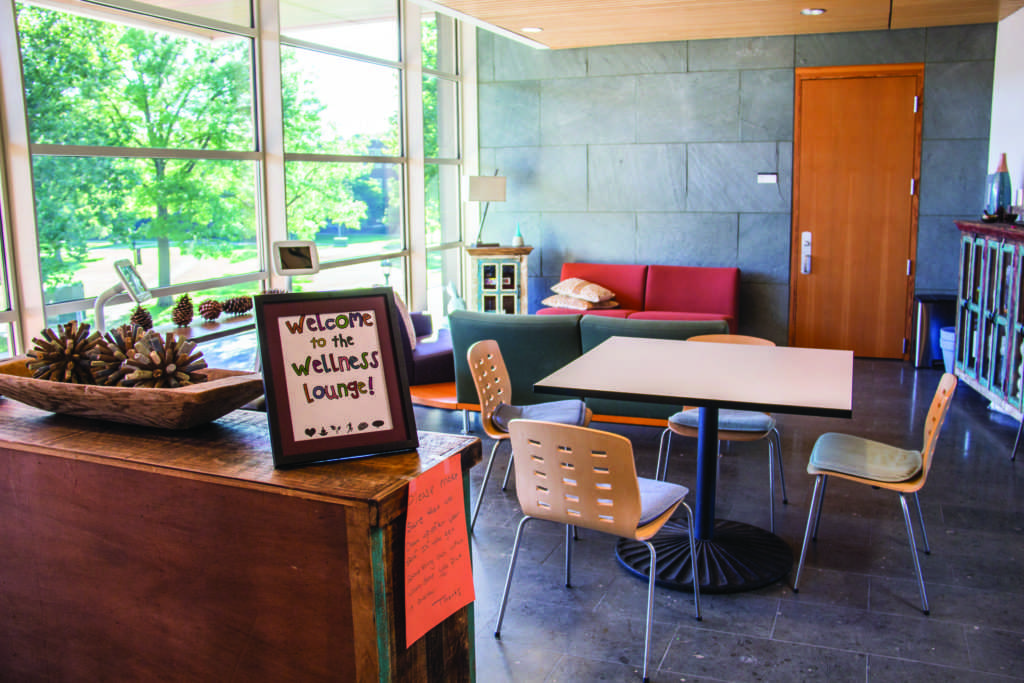To fulfill its commitment to the College, the Council on Diversity and Inclusion recently released the Campus Climate Survey to gauge how safe people with various identities feel at Grinnell. Last given in 2009, the survey is part of a yearly rotating series of surveys aiming to identify and distinguish problems that the College hopes to address. However, creating an effective and fair survey to give out to Grinnellians, including staff and faculty, proved to be harder than anticipated.
Student Government Associate (SGA) has been involved with the implementation and design of the survey. When Anita DeWitt ’17 held the chair position of the Diversity and Outreach Coordinator Committee during the 2015-16 school year before becoming SGA President, DeWitt had reviewed the survey with Assistant Vice President and Chief Diversity Officer Lakesia Johnson. Toby Baratta ’17 now holds the position of Diversity and Outreach Chair and agrees that the survey has lots of problems.
“[The College] has this habit of using outside surveys and when we use these surveys we are getting questions that are phrased in a statistically valid way,” Baratta said. “However, often times the way that those questions are phrased is in a way that is asking a question at a lower bar than Grinnellians expect.”
Barratta and DeWitt acknowledge that the survey aims to comparatively evaluate how the College is doing against other colleges nationwide, but the SGA cabinet members also believe that the uniqueness of the College will provide confounding variables to the results. Baratta and DeWitt point out the low numbers of people of color and the location in a state known for its subpar mental health treatment as factors that will heavily affect Grinnellian responses to the survey.
“Is the point of the survey to see how we’re doing against our own standards or how are we doing against national standards?” Baratta said. “They are both different questions and important, but this survey is trying to address both of them, and I think that’s why we’re … contesting against a standard that is not Grinnellian.”
Aside from the survey lacking a clear comparison between peer institutions or the nation, the survey phrases its questions in ways that some may consider derogatory, too vague or insufficient to speak on certain issues. However, Baratta and DeWitt stress the importance of taking the survey despite its faults.
“Not taking the survey has harmful responses because then those voices that really need to be heard, that are being insulted by the survey, aren’t being heard,” Baratta said. “You can also skip questions, or take a break from it.”
To add much-needed diversity to the survey responses relative to that of past years, Baratta and DeWitt hope that more international students and non-women take the survey. Past surveys have shown that they represent a small portion of the responses analyzed; therefore, the College may have a hard time meeting their needs since they are not adequately expressed.
Baratta points out that the timing of the survey, specifically during a Trump presidency, will likely affect the results.
“The timing is pretty awkward, but I feel like given the politics in the U.S. there’s not going to be a good time to put out this kind of survey,” Baratta said. “But I think we need to have these questions asked and if this is going to be a reality for the next four years, we [have to focus on] making sure that students feel safe.”
Baratta and DeWitt also fear that Grinnellians, both students and faculty, will not see the survey results. And if they do, the two SGA members fear that Grinnellians will downplay the results.
“Sometimes the results are super honest and you learn how lonely people feel and it’s terrifying, but also the other scary thing is that other people won’t find out the survey results because we can’t reveal it because it’s too descriptive of [a] person,” DeWitt said.
Faculty and staff completed the survey right before the College closed for winter break. There is no deadline for students to complete the survey.






















































